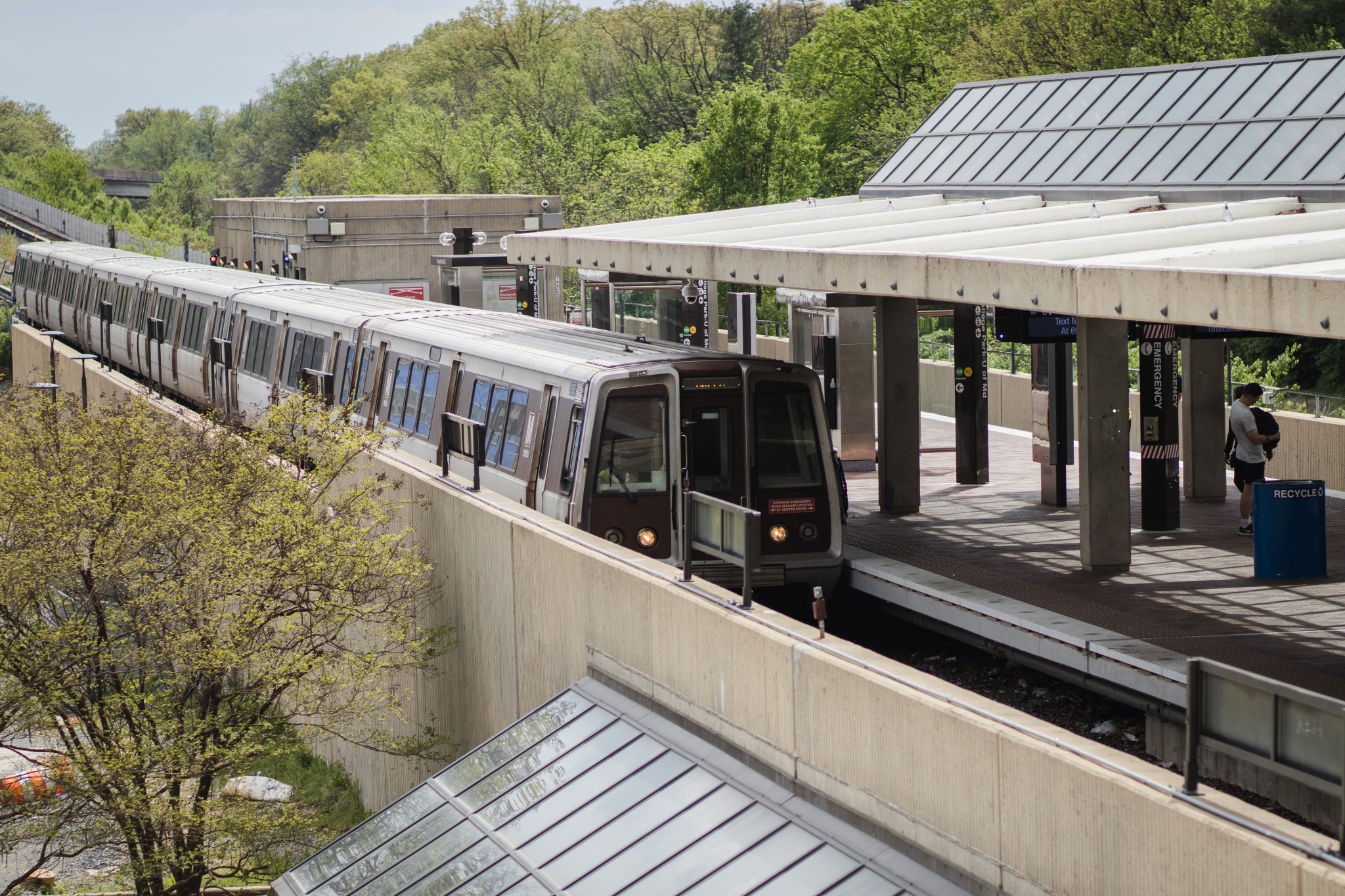Prince George’s County residents spoke out against Metro and bus service cuts for the 2025 fiscal year during a public hearing Thursday, citing transit deserts and disability equity as important issues.
The cuts, spurred by the Washington Metropolitan Area Transit Authority’s budget shortfall, would affect approximately 14,000 Prince George’s County residents, according to a website run by County Executive Angela Alsobrooks’ office. Among other reductions in service, the proposal would remove 67 bus lines, 22 of which currently operate within Prince George’s County, the website said.
“The FY25 proposed budget presents an unrecognizable Metro due to the unprecedented service cuts necessary to close the operating deficit through internal levers,” Yetunde Olumide, Metro’s chief financial officer, said.
The proposed budget, which was introduced in December 2023, would lead WMATA to complete a major frequency reduction to all Metro lines, increase fares and parking rates by 20 percent, close 10 rail stations and end rail service at 10 p.m., Olumide said at the meeting.
[Prince George’s County Council discusses bill to support Black-owned businesses]
According to Andrea Thomas, a former member of the county’s commission for individuals with disabilities, these proposed cuts will create transit deserts — areas with no accessible public transportation — across WMATA’s service area, including in Mitchellville, Bowie, Upper Marlboro and Laurel.
At the virtual public hearing, led by Sarah Kline, a member of WMATA’s board of directors, community members said the proposed cuts and resulting transit deserts would especially negatively impact those with disabilities who rely on public transit.
Thomas noted that many people with disabilities have no alternatives for transportation.
“The proposed bus cuts demonstrate a lack of concern for the most vulnerable citizens, people with developmental disabilities who use MetroAccess [Paratransit],” Thomas said. “Transit equity matters. People with developmental disabilities matter. WMATA should not create transit deserts.”
The budget cuts would impact every corner of the Washington, D.C., area, so decreasing transit availability would also hurt bicyclists and individuals without cars, Kevin O’Brien, a member of the Washington Area Bicyclist Association, said.
“Station closures mean a smaller radius, a smaller world, for the tens of thousands of people just like me, without a car,” O’Brien said.
[UMD DOTS says Shuttle-UM routes could see cuts without proposed student fee hike]
The cost-saving initiatives that WMATA is planning will also impact wages for workers, according to Matthew Girardi, the political and communications director at Amalgamated Transit Union Local 689, a union representing transit workers.
Girardi said that solutions for WMATA’s budget deficit “cannot and must not fall on the backs of working-class people.” Steps like freezing wages will push workers out of the system, he said.
Metro is aware that the cuts would negatively impact users but an unprecedented $750 million deficit needs solutions, Olumide said.
“We’re committed to being open and transparent about the impact on service and the region if we can’t close the budget gap,” Olumide said.



